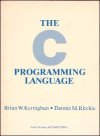 While I was searching some programming hints and examples to prepare a C/C++ training course I came across the following Wikipedia page.
While I was searching some programming hints and examples to prepare a C/C++ training course I came across the following Wikipedia page.
I found it so real and hilarious that I decided to share my experience here on my blog, because I have to admit that after 24 years programming with C I can consider it my second language, after italian and before english.
The term Real Programmer is used in computer programmers’ folklore to describe the archetypical "hardcore" programmer. A Real Programmer eschews modern or graphical tools such as integrated development environments or languages other than assembly language or machine code in favour of more direct and efficient solutions – closer to the hardware.
 While I was searching some programming hints and examples to prepare a C/C++ training course I came across the following Wikipedia page.
While I was searching some programming hints and examples to prepare a C/C++ training course I came across the following Wikipedia page.
I found it so real and hilarious that I decided to share my experience here on my blog, because I have to admit that after 24 years programming with C I can consider it my second language, after italian and before english.
The term Real Programmer is used in computer programmers’ folklore to describe the archetypical "hardcore" programmer. A Real Programmer eschews modern or graphical tools such as integrated development environments or languages other than assembly language or machine code in favour of more direct and efficient solutions – closer to the hardware.
Modernisation of the real programmer
Over the years, the figure of the ‘real programmer’ was taken up and adapted as new and more powerful programming languages were created. If actually the real programmer of the eighties "does all in Fortran" instead of Pascal, one of the nineties "does all in C rather than C++ or Java, or" does everything in Perl "rather than Python or Ruby.
Sources: Wikipedia Real Programmer, Vero Programmatore

